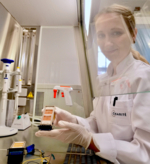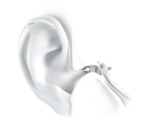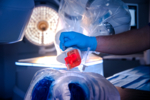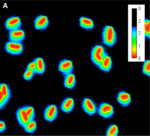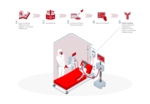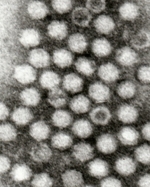
Gene therapy for weakened hearts
Treating a weak heart – for example after a heart attack – at the GP’s surgery with a single intravenous injection, without causing serious side effects: what sounds almost too good to be true is actually already under development. The Heidelberg-based biotech company AaviGen is working on a platform technology based on adeno-associated viruses that can help introduce therapeutic genes in a highly specific way into diseased heart muscle cells.
